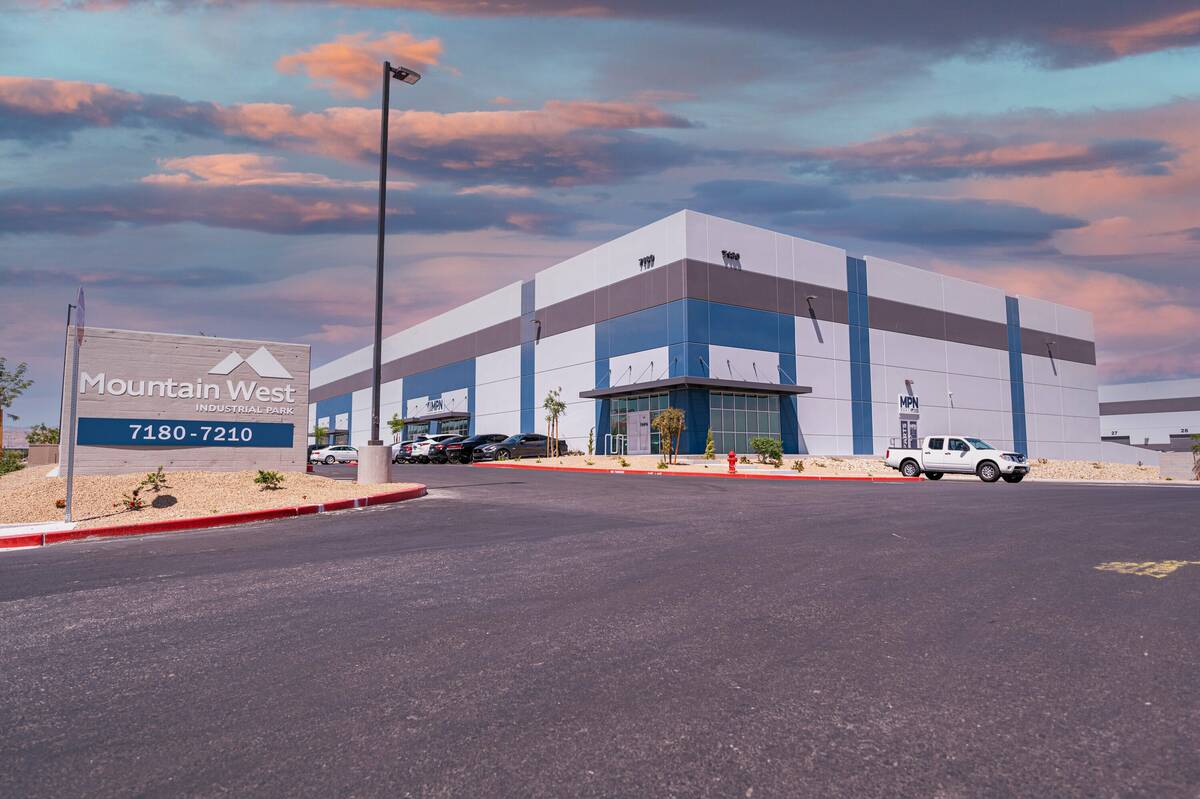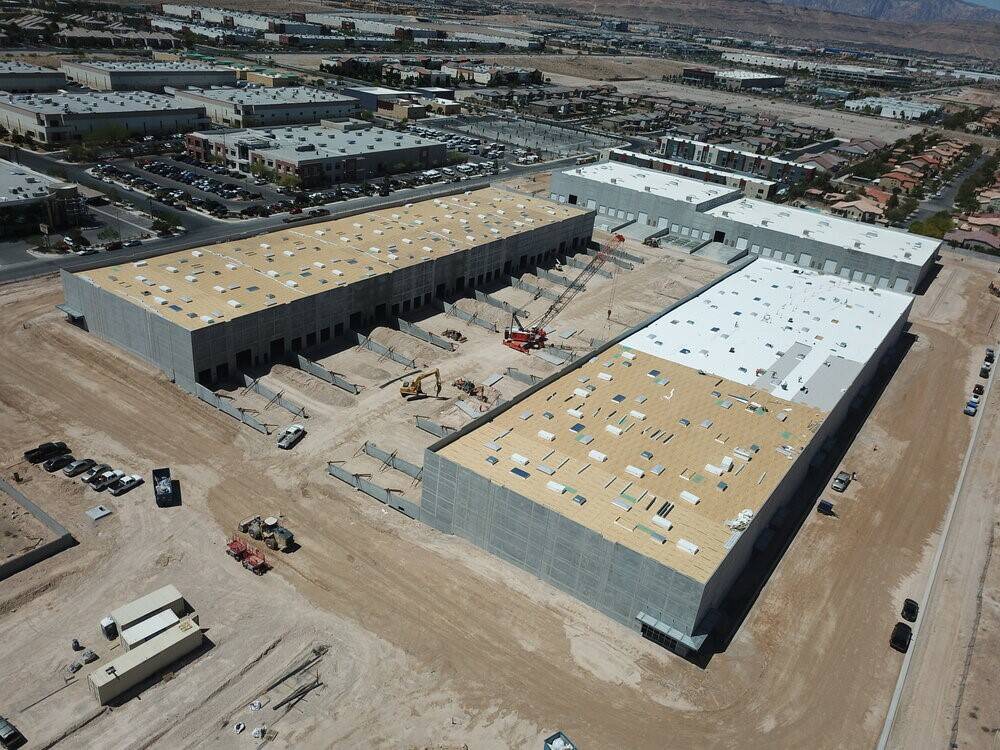What is powering Las Vegas’ commercial real estate boom?
The Mountain West Industrial Park, a 16-acre complex located near Rainbow Boulevard just north of the 215 Beltway, is a good example of a trend sweeping the Las Vegas Valley’s commercial sector.
Speculative industrial buildings — projects that start construction without a lease in place — have taken over, with a growing number of buildings sprouting up across the valley. But constructing these types of projects is a bit like gambling at any of Las Vegas’ casinos, said the developer of Mountain West Industrial Park, of which phase two is expected to be completed in 2025 at a price tag of $25 million.
“Bottom line we’re making a bet on Las Vegas and we’re making a bet on the location in the market we’re in,” said Jonathan Schwartz, owner of Mountain West Industrial Park and president of Miltson Consulting, a real estate development company. “The challenging thing with industrial is you don’t get a lot of pre-leasing so you can’t take a lot of the risk out of it. But once you start to go vertical, once you start to build walls, you’ll start to sign leases.”
Schwartz said they do their homework regarding statistical analysis of the area and related projects within the vicinity, but there is still a leap of faith that takes place. Mountain West has multiple tenants already set up as part of its first phase, including US Pharmatech, MPN (a HVAC wholesaler) and Spreadshirt, a German-based T-shirt manufacturer.
Industrial spec leading the way
The Las Vegas Valley’s economy has started to diversify beyond gaming and tourism over the past few years and leading the way is commercial companies relocating from such places as California while the valley positions itself as an alternative West Coast logistics hub for many companies.
John Stater, a Las Vegas-based research manager for Colliers, said that for the last five years or so spec industrial has been the commercial industry’s go-to product. Nevada has a number of tax incentives for businesses including no taxes on corporate income or corporate shares as well as no franchise taxes, no personal income, inheritance or gift taxes and no unitary and estate taxes which are all making it an affordable alternative to places such as California’s regulation heavy business environment.
“Since 2019, a total of 260 speculative industrial buildings were completed in Southern Nevada, as well as 31 build-to-suits,” Stater said. “Build-to-suit construction got the developers back on their feet after the Great Recession, but over the past decade speculative construction has dominated development in the valley.”
The rise of the valley’s commercial sector has been largely powered by the industrial subsector and specific areas such as North Las Vegas, the southwest valley and Henderson as the first quarter of 2024 saw the highest level of new industrial supply hit the market in years. North Las Vegas has seen one of the biggest industrial booms in the country over the past year as a wave of new projects have completed or started at the Apex Industrial Park.
Mike Nigro, president of Nigro Construction who built the Mountain West Industrial Park, said there are different levels of risk when building industrial spec, but it is always a gamble.
“First you have to buy the land, so then the first risk is the outlay of cash on the land,” he said. “Now, land has value whether you’ve developed it or not, and then a client like Jonathan has to put in significant dollars to design the project. Then the next phase is building the project and pulling the permits. That’s when the real risk starts because now you’re into say a $20 or $30 million project and you have to deliver it.”
The Federal Reserve’s first interest rate cut in years should also help the industrial spec market. Nigro said the cost of doing business has skyrocketed since the pandemic, including everything from supplies and construction wages to buildings costs and permit fees.
Cory Frank, vice president of business development and project management for Nigro Construction, said tenants have also changed dramatically over the past few years as cultural norms shift and it’s not uncommon to see a warehouse-styled company or logistics corporation beside a recreational tenant like a trampoline park or sports training facility.
“When designing the site, we have to ensure that you can maneuver an eighteen-wheeler, but at the same time not lose building footprint and accommodate smaller local businesses who use the facility for uses outside of manufacturing such as basketball training, volleyball training, and gymnastics,” he said.
Contact Patrick Blennerhassett at pblennerhassett@reviewjournal.com.



















